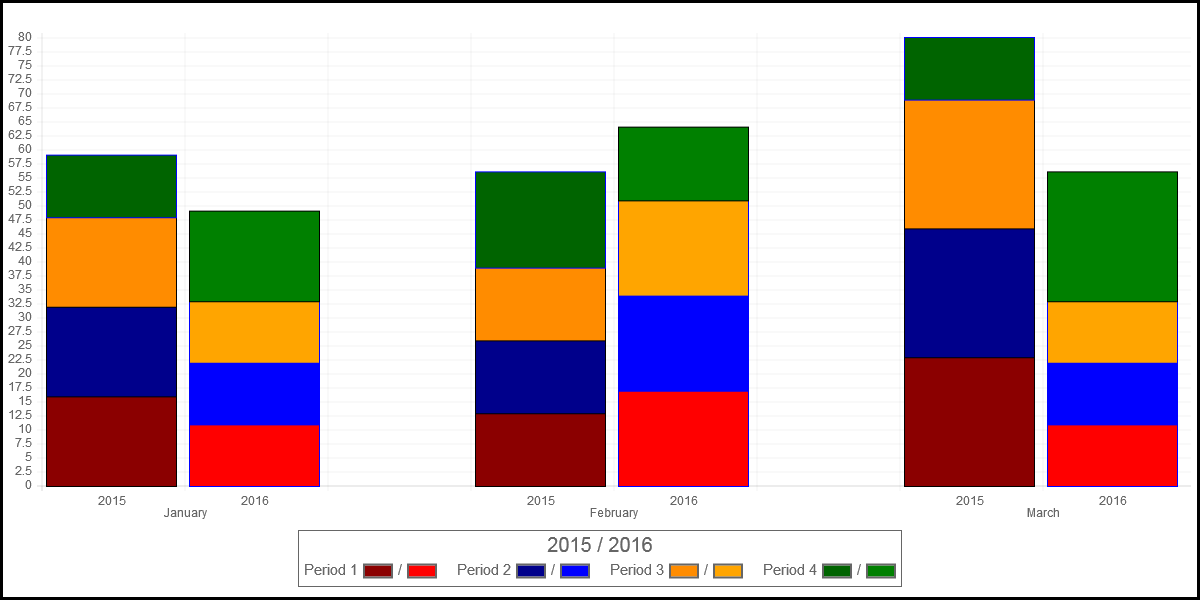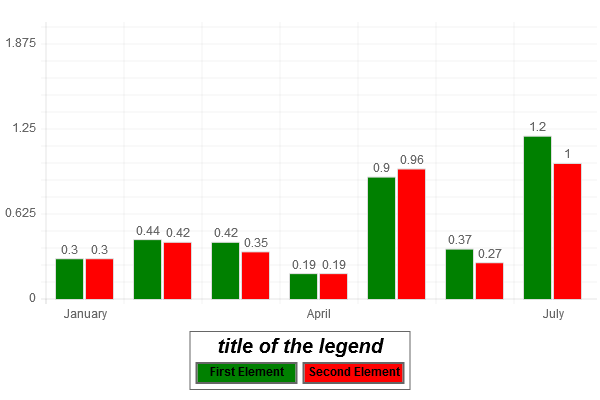-
Notifications
You must be signed in to change notification settings - Fork 140
900_090_Advanced_Legend
Previous Chapter Previous Page Table of content
In the core module of ChartNew.js, a "standard" legend can be drawn : very limited possibilities to format it. With this "Add-ins", you get lot of possibilities to draw a legend.
Example :
ENCORE A FAIRE !!!!!!!!!!!
In the core of ChartNew.js, two functions have been defined and are used to draw the legend : drawLegend and measureLegend. In order to use this "Add-ins", you have to include it AFTER the ChartNew.js. This Add-ins, will replace those two functions by two new ones with more possibilites.
If no additional specifications are defined in the code of your program, the new drawLegend and measureLegend functions will behave similar to the functions included in the core of ChartNew.js : the same legend will be drawn.
If you want to use the extended possibilities given by the add-ins, you have to specify a legend section in your data.
Example :
var mydata = {
labels : ["January","February","March","April","May","June","July"],
datasets : [
{
fillColor : "green",
data : [0.30,0.44,0.42,0.19,0.90,0.37,1.20],
title : "Bar 1"
},
{
fillColor : "red",
data : [0.30,0.42,0.35,0.19,0.96,0.27,1.00],
title : "Bar 2"
}
],
legend : [
{
element:"CR",
nextLineAlign : "center",
},
{
text : "title of the legend",
elementWidth: "titre1",
elementHeight : "titre1",
element : "shapeText",
fontSize : 20,
fontStyle : "bold italic",
fontColor: "black"
},
{
element:"CR",
nextLineAlign : "center"
},
{
text : "First Element",
fontStyle : "bold",
fontColor: "black",
textVPos : 2,
textHPos : 2,
elementWidth: "width1",
elementHeight : "height1",
shapeWidth : "widthShape1",
element : "shapeText",
shape : "rectangle",
shapeFillColor : "green"
},
{
text : "Second Element",
fontStyle : "bold",
fontColor: "black",
textVPos : 2,
textHPos : 2,
elementWidth: "width1",
elementHeight : "height1",
element : "shapeText",
shapeWidth : "widthShape1",
shape : "rectangle",
shapeFillColor : "red"
}
]
}
We will now explain what you have to specify in the legend section !
A legend is a collection of elements; An element is composed of a shape and/or a text.
In previous example, there are 3 elements : "Title of the legend" is the first one (this element has no shape associated), "First Element" and the green rectangle around is the second element; "Second element" and the red rectangle around is the third one. For each of those elements, there is a specification in the legend section in the data.
Those 3 elements have to be positionned in the legend. In the example, two additionnal specifications are necessary : one for the title to specify that the title has to be centered and one after the title to force the display of the 2 other elements on another line. 2 additionnal specifications have been inserted in the legend section.
So for the example, the legend section is composed of five specifications : one for each of the 3 elements and 2 for the positionning of those elements.
The legend is described through a table composed of two types of elements : "shape and/or text" elements and "positionning" elements.
var mydata = {
labels : [...],
datasets : [...],
legend : [<element 1>,<element 2>,...,<element n>]
}
can be one of the following :
- A shape and a text
- A shape
- A text
The legend section is a table composed of one or more elements.
Each elements can have several variables

